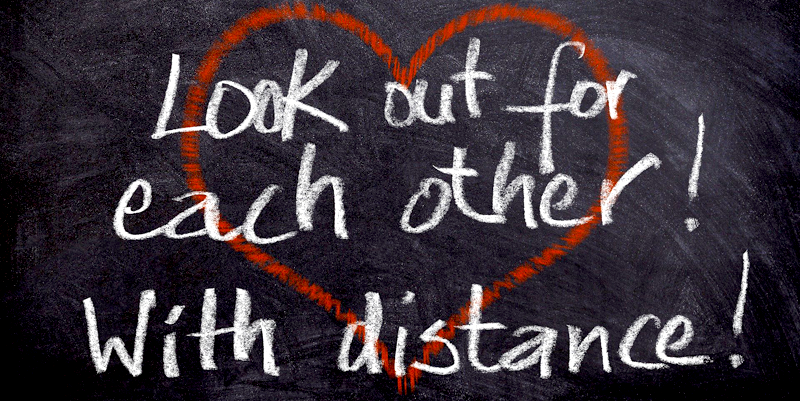Written By: June M Bachman ~
3/27/2020 9:00:00 AM

This blog post is to help explain some of the details in the CARES Act that may assist small businesses and self-employed. Hopefully, the information is of value, as you adjust your business planning for the next few months.
NOTE – The CARES Act has currently passed unanimously in the Senate, and also passed in the House and is being sent to the President for signature.
EVERYONE GETS SOME MONEY!
A Direct One-Time Cash Payment to Individuals and Families. ($250 Billion)
- Individuals with less than $75,000 annual income or less will receive a one-time $1200 check.
- Individuals with Income less than $75,000 = $1200
- Head of Household with Income less than $112,500 = $1200
- Married Couples with Income less than $150,000 = $2400
- $500 per each child in qualifying households with valid social security numbers – under age 17.
- The payment would scale down by income, phasing out entirely at $99,000 for singles and $198,000 for couples without children. Which means individuals with income more than $75,000 but less than $99,000 would receive a portion of the $1200.
- Annual income levels are determined by past income tax returns.
- For tax payers who filed returns in 2018 or 2019 and used direct deposit, the US Treasury will provide funds via direct deposit.
- For tax payers who have not used direct deposit, the US Treasury will send paper checks to the last address on record.
- NOTE: If you have not yet filed your 2019 taxes (now due on July 15th, 2020) you may wish to file your taxes to ensure the US Treasury has your most up to date address, and also setup to use direct deposit. Direct deposit will speed up how quickly you receive the funds. Paper checks may take weeks or months to be received.
Access to Your Retirement Funds
Access to Retirement Funds Without Penalty for coronavirus-related distributions
- The 10% early withdrawal penalty for distributions from retirement plans (401k and IRA) have been waived for distributions up to $100,000.
- The waived penalty is retroactive to January 1, 2020.
- Additionally, minimum required distributions from retirement accounts are suspended for 2020. This allows older Americans to keep their capital invested, instead of being forced to take required draws without penalty.
Small Business Loans via the SBA
Loans to Small Businesses ($350 Billion)
- Paycheck Protection – This is loan forgiveness for Small Business Loans for keeping employees (on payroll) to help prevent workers from losing their jobs, and small businesses from going out of business due to economic losses caused by COVID-19.
- Paycheck Protections provides eight weeks of cash-flow assistance through federally guaranteed loans to small employers who maintain their payroll during the emergency.
- If the employer maintains payroll, the portion of the loan used to cover payroll costs, interest on mortgage obligations, rent, and utilities would be forgiven. This is retroactive to February 15, 2020, to help bring workers who may have already been laid off back onto payrolls.
- Debt Relief – For six months, the SBA is required to pay all principle, interest and fees on all existing SBA loan products including 7(a), Community Advantage, 504, and Microloan programs.
Employers May Delay Payroll taxes:
- The measure allows employers to delay the payment of their 2020 payroll taxes until 2021 and 2022.
Support for Businesses Suffering Losses
- Allows businesses to carry back losses from 2018, 2019 and 2020 to the previous 5 years.
Unemployment Benefits – INCLUDES SELF EMPLOYED!
Expanded Unemployment Insurance Benefits ($250 Billion)
- Workers who are furloughed—but not actually laid off—will be eligible for unemployment benefits.
- The unemployment benefit is increased by $600 per week for four months - on top of what state unemployment programs pay.
- This money is in addition to what states pay as a base unemployment salary.
- Benefit eligibility includes gig economy workers, self-employed workers, freelancers, and furloughed workers who are still getting health insurance from their employers, but are not receiving a paycheck
- Unemployed workers, if needed, will receive 39 weeks of unemployment benefits, which will carry them through to the end of 2020.
- In an unprecedented move, the stimulus act expands unemployment protections to gig workers, freelancers and self-employed individuals, who typically don’t qualify for unemployment benefits.
- It’s not clear yet how state benefits will be calculated for these workers; unemployment is traditionally calculated as a percentage of weekly earnings, up to a maximum amount.
- These benefits would mirror what's available in an individual's state.
